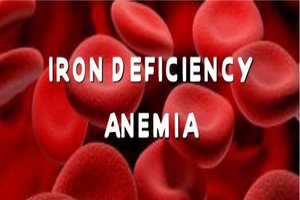- Home
- Editorial
- News
- Practice Guidelines
- Anesthesiology Guidelines
- Cancer Guidelines
- Cardiac Sciences Guidelines
- Critical Care Guidelines
- Dentistry Guidelines
- Dermatology Guidelines
- Diabetes and Endo Guidelines
- Diagnostics Guidelines
- ENT Guidelines
- Featured Practice Guidelines
- Gastroenterology Guidelines
- Geriatrics Guidelines
- Medicine Guidelines
- Nephrology Guidelines
- Neurosciences Guidelines
- Obs and Gynae Guidelines
- Ophthalmology Guidelines
- Orthopaedics Guidelines
- Paediatrics Guidelines
- Psychiatry Guidelines
- Pulmonology Guidelines
- Radiology Guidelines
- Surgery Guidelines
- Urology Guidelines
Only 53% of RBC transfusions for Iron deficiency Anaemia appropriate, finds study

Therefore implementation of simple educational and practical interventions results in improved RBC (red blood cell) transfusion appropriateness in individuals with iron deficiency anemia (IDA) in the emergency department (ED), according to a quality-improvement project.
Yulia Lin, University of Toronto, Toronto, Canada, and colleagues reported results of the study, aimed to increase the rate of appropriate transfusion for individuals presenting to the ED with IDA, in the journal Transfusion.
Patients presenting to the ED with iron deficiency anemia (IDA) are underrecognized, undertreated with iron, and over-transfused. A 3‐month audit of RBC transfusions at the Sunnybrook Health Sciences Centre ED in 2013 showed that only 53% of transfusions for IDA were appropriate. The aim of this quality improvement project was to increase the rate of appropriate transfusion to greater than 80%.
Simple educational and practical interventions implemented in this quality-improvement project resulted in the improved appropriateness of RBC transfusion in individuals with IDA.
Also Read: Ferric carboxymaltose most effective therapy for GI-related iron deficiency anemia
Since November 2013, several quality improvement interventions have been implemented, including educational presentations, development of an algorithm on IDA management in the ED, and development of an ED IDA toolkit. The primary outcome was the appropriateness of RBC transfusions per month. The process measure was monthly intravenous (IV) iron use in IDA patients managed exclusively by ED staff. Balancing measures included IV iron use according to the algorithm and undertransfusion.
Over a 24-month period beginning January 2014, assessment of 193 units transfused in the ED showed an improvement of RBC appropriateness to 91% (range 50%-100%). IV iron use increased from one dose in the 3-month audit to an average of 2.6 and 4.7 per month in 2014 and 2015, respectively. IV iron use did not follow the algorithm in 19% (18 of 93) of cases: 12 were given to patients with a less severe iron deficiency or bleeding.
"Our project consisted of interventions focused on improving ED staff management of IDA. Prior to the implementation of the interventions, the baseline appropriateness of RBC transfusion was 53%. After implementation, median percentage appropriateness over several months was 91%," concluded the authors.
For more information log on to https://doi.org/10.1111/trf.14626

Disclaimer: This site is primarily intended for healthcare professionals. Any content/information on this website does not replace the advice of medical and/or health professionals and should not be construed as medical/diagnostic advice/endorsement or prescription. Use of this site is subject to our terms of use, privacy policy, advertisement policy. © 2020 Minerva Medical Treatment Pvt Ltd